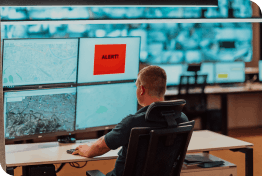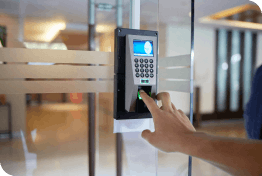
- Integrated Security Solutions
Future-proof SOCs: Blending People, Skills, and Integrated Technology
In the fast-paced and constantly evolving field of physical security, the role of Security Operations Center (SOC) operators is undergoing a major transformation. Thanks to unified security solutions, operators are now equipped with cutting-edge tools that streamline their daily tasks and significantly enhance their capability to spot and respond to threats quickly.
Gone are the days when security systems operated in isolation, creating more chaos than coherence. Unified security solutions are changing the game by integrating various elements—like video surveillance, access control, and smart analytics—into a powerful platform. This integration offers operators a bird's-eye view of the entire security scene, making it easier for them to make informed decisions and proactively manage potential threats.
Let's delve into how these technological advancements are revolutionizing the skills of SOC operators and why they're crucial in building a future-proof, resilient SOC ready to tackle tomorrow's challenges. 🧑💻
The traditional role of operators in SOCs
In the classic setup of Security Operations Centers, operators monitor security systems, springing into action at the sound of an alarm and coordinating with the right team for the situation. They often manage a labyrinth of screens and interfaces, each offering a piece of the puzzle but rarely the full picture. This piecemeal view can slow down response times and, unfortunately, ramp up the risks.
Moreover, these operators often find themselves deep in the trenches of data, manually sifting through logs and reports. It's a slow process, fraught with the potential for slip-ups. They lean heavily on their own judgment and gut feelings to pinpoint potential dangers, a method that, while valuable, struggles to keep pace with the slick, ever-evolving nature of alarms.

Evolution of the operator role with unified security solutions
Unified security solutions have transformed the operator's role in SOCs. Operators are no longer just passive monitors; they have become proactive managers of security incidents. With a comprehensive view of the security landscape and access to real-time data, operators can identify trends, patterns, and anomalies more effectively.
Additionally, operators are now responsible for managing the unified security platform because of its ease of use. They ensure its smooth operation and troubleshoot any technical issues that may arise. They collaborate closely with IT teams and security vendors to maintain the system's integrity and optimize performance.

New responsibilities and skills in the control rooms
As the role of SOC operators transforms, they're stepping into a world where their job description and the skills they need to shine rapidly expand. To thrive in the modern SOC environment, operators must deeply understand their unified security platform and its breadth of capabilities. They must be adept at leveraging the platform's tools to their full advantage, ensuring they can manage security incidents with finesse and efficiency.
This new era demands that SOC operators undergo comprehensive training that stretches beyond the basics of security. They're being trained to enhance their analytical thinking, tech-savvy, and awareness of cybersecurity landscapes. Soft skills, too, are on the curriculum—effective communication, teamwork, and the ability to remain calm under pressure are key to orchestrating a synchronized and impactful response to security challenges.
Moreover, exceptional communication and collaboration skills are essential tools in their kit. Operators must maintain clear lines of communication with teammates, external partners, and emergency responders to guarantee swift and well-coordinated action during security events. Building solid relationships with vendors and staying abreast of the latest security tech and trends are also part of the job.
Adapting to unified security solutions involves more than just new software—a shift in culture and workflow. A thoughtful change management strategy is critical, inviting operators to engage with the new system. Their input can help tailor the system to meet their needs and those of the SOC better. Through clear communication and targeted training programs, operators can get up to speed with the new tools, ensuring a smooth transition to a more integrated, efficient security operation.
Preparing for the future: Training and development for SOC operators
As we chart the course of the future in physical security, it's evident that technology will be a key driver of change. However, the essence of a resilient and effective SOC lies in its human capital. The transition to more sophisticated, integrated security solutions underscores the indispensable role of SOC operators. Their expertise, judgment, and adaptability are the linchpins of successful security operations.
In our quest for innovation, we must prioritize the development and well-being of crucial personnel. By fostering a culture that values continuous learning, collaboration, and human-centric security practices, we can ensure that our SOCs are equipped with cutting-edge technology and powered by skilled, vigilant, and dedicated professionals.


